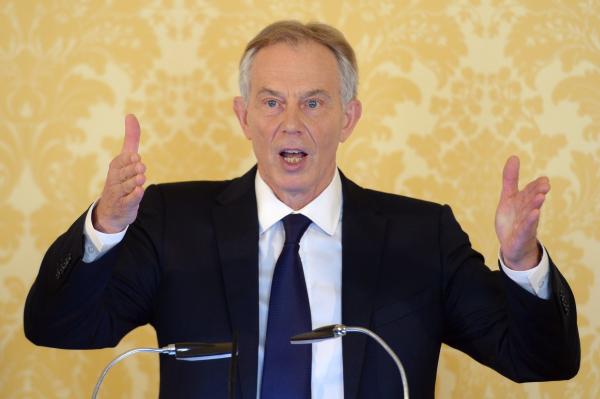Former Prime Minister Tony Blair’s decision to join the U.S. invasion of Iraq in 2003 was “not justified”, according to the UK’s long-awaited Iraq War inquiry.
Although he described Saddam Hussein as “undoubtedly a brutal dictator”, Sir John Chilcot, whom ex-Prime Minister Gordon Brown chose to head the inquiry seven years ago in 2009, said that Saddam Hussein did not pose an “imminent threat”.
The notorious dossier concerning Iraq’s possession of weapons of mass destruction was presented to MPs in 2002 with unwarranted certainty and that the dossier was purposely directed at increasing the perceived severity of the threat posed by Saddam.
“At no stage was the proposition that Iraq might no longer have chemical, biological or nuclear weapons or programs identified and examined by either the JIC or the policy community,” the report said.
Chilcot made the conclusion that the UK’s decision to go to war in Iraq was not a “last resort” move,”At the time of the parliamentary vote of 18 March, diplomatic options had not been exhausted. The point had not been reached where military action was the last resort.”
Blair’s government was also criticized for failing to anticipate the devastating consequences of military action. Chilcot mentioned the deaths of “at least 150,000 Iraqis – and probably many more – most of them civilians” and “more than a million people displaced”. It concluded that “the people of Iraq have suffered greatly”.
It was found that Blair did not adequately take into account several warnings made by the intelligence services concerning the possible consequences of the invasion and depended on his own views to a larger extent.
The report published a private note written to former US President George Bush eight months before the 2003 invasion which said, in the face of opposition from the UK Cabinet Office, “I will be with you, whatever.”
Chilcot went on to state that the British government’s post-invasion planning was inadequate:
“The information on Iraq available to the UK government before the invasion provided a clear indication of the potential scale of the post-conflict task.”
“When the invasion began, the UK Government was not in a position to conclude that satisfactory plans had been drawn up and preparations made to meet known post-conflict challenges and risks in Iraq and to mitigate the risk of strategic failure.”
Although the report does not judge whether the Iraq invasion was legal or not, it concludes that the way in which the legal basis of the war was dealt with prior to the invasion was “far from satisfactory”.
It said that the legal advice produced by the government’s attorney general, Lord Goldsmith, was presented to senior ministers in a cabinet meeting, however it was not discussed in substantial detail.
“There was little appetite to question Lord Goldsmith (Attorney General) about his advice” that the invasion was legal, and “no substantive discussion of the legal issues was recorded”, the report said. It concluded that Lord Goldsmith should have given written legal advice.
Following the release of the Chilcot report, Blair spoke at a two-hour press conference and said that his decision to invade Iraq was the “most agonizing and momentous” decision of his time as Prime Minister. He stated that he takes full responsibility for his role in the Iraq war. He said that intelligence given to him at the time turned out to be mistaken, post-war planning had been poor and that it has since resulted in the unintended rise in “sectarian terrorism” in Iraq.
“For this I express more sorrow, regret and apology than you may ever know or can believe,” said Blair.
Although he said that he accepts the inquiry’s criticisms of his decisions even when he does not agree with some of them, he insisted that he will not accept two things.
He will not state that he regrets removing Saddam from power because he believed he was doing the “right thing” at the time and that Iraqi’s are better off without Saddam, claiming that “Saddam was himself a wellspring of terror…If he’d been left in power in 2003…he would have clung to power with the same deadly consequences we see in the carnage in Syria today.”
He also insisted that he will not accept that the deaths of British soldiers were “in vain”, saying that “they fought in the defining security struggle of the 21st century [terrorism]” despite the fact that some of the slain soldiers families will not agree with this.
